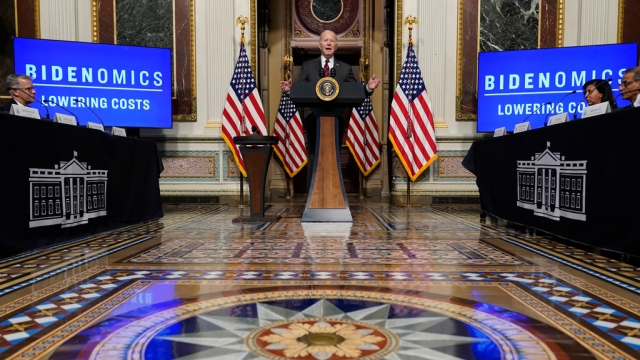U.S. President Joe Biden has announced the launch of a new White House council focused on keeping the supply chain resilient.
In his announcement of the new supply chain resilience council on Monday, the president cautioned companies against price gouging, emphasizing his administration's efforts to reduce costs for American families.
"We know the prices are still too high for too many things, that times are still too tough for too many families. But we’ve made progress, but we have more work to do," President Biden said.
The new council will come with 30 actions to help strengthen critical supply chains, actions that are part of an effort to keep pandemic-era shortages from happening again.
The council will be made up of government leaders from different agencies, including senior White House officials and cabinet members.
The president also announced he plans to use the Defense Production Act to empower the Department of Health and Human Services for domestic medicine manufacturing, allocating $35 million for sterile injectable medicine production to reduce reliance on foreign suppliers.
“I’m proud to announce that I’ll be invoking what’s known as the Defense Production Act to boost production of essential medicines in America by American workers. Because you notice we’ve had—people had to get certain kinds of shots. It was not available. You had to get it overseas,” said Biden. “Well, that supply chain is going to start here in America. We’re going to help ensure American families have reliable access to medicines they need.”
The United States has been actively collaborating with foreign allies and partners, including a recent supply chain agreement with Indo-Pacific partners announced in San Francisco a few weeks ago.
Furthermore, the federal government is enhancing supply chain monitoring by facilitating data sharing among agencies, expanding beyond government boundaries, and reinforcing early warning systems.
These announcements carry considerable weight as the White House aims to highlight the president's economic agenda, a crucial component in his efforts to bolster domestic manufacturing and job creation in the United States.
The administration points to indicators such as cooling inflation, reduced unemployment, and increased wages. However, the president acknowledges the ongoing work needed, while emphasizing the progress his administration has made. Republicans, on the other hand, criticize Biden on these fronts, highlighting the shortages the administration has grappled with.
SEE MORE: Which way is the US economy going?
Trending stories at Scrippsnews.com



